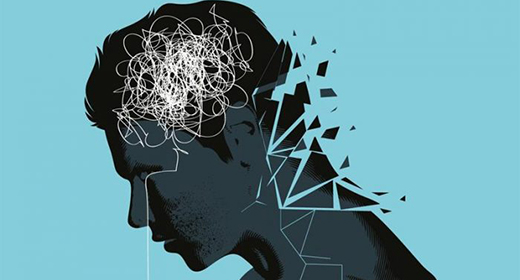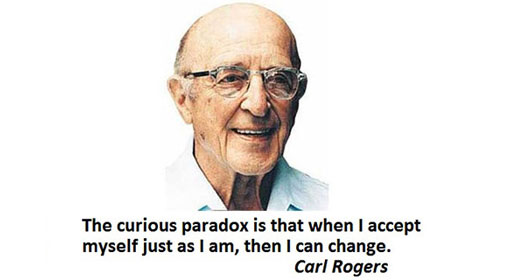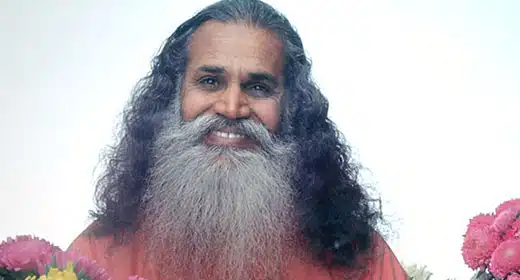What I was wondering is if you could talk a little about distinguishing between healthy independence, like your refusal to go to medical school,
and an egoism that would be an obstacle to personal growth.
Ram Dass: Well, let’s first just define the term a little bit. The term ego is a structure of mind that organizes the universe particularly around the relationship to separateness. It’s in the domain of separateness. It is the steering mechanism for you as a separate entity. There are two mechanisms going on inside you, you could equate them to the head and the heart at one level, although that’s a little shoddy. At the level of the intellect, or the conceptual structures of mind, there it is a mechanism, it’s a steering mechanism for keeping you as a separate entity surviving and functioning within the universe, within this world, on this plane.
Then there’s the other part of you. The Atman, the Jivatman, the heart, the intuitive wisdom, whatever that is, that merges, that goes out and balances and flows, and gives away everything and doesn’t care, it’s like the lilies in the field, the unconditional lover. And there’s a tension between those two things.
Now when you develop the ego structure, this mechanism, this central computer necessary for running the game, the question arises as to how attached you are, or how identified you are with it. In spiritual evolution, you don’t destroy the ego, you merely turn away from identifying with it, to having it as a functional unit. You still need it as a functional unit so that when I’m talking to you I realize there’s a you and a me and I’m talking to you on this plane. I’ve also gotta have my heart open so that at another plane I’m just talking to myself. Right? These are two planes of reality. Because it’s God talking to itself.
So when I have this ego structure for orienting me and functioning on this plane, it is going to be functional when I’m not identified with it. Swami Vivekananda said that the ego is a lousy master but a wonderful servant. See? And the art is to convert it into being a servant. The original image from Ramakrishna is when he’s talking about a horse drawn carriage and there’s a coachman is sitting up on top, and the horses are the desires and the coachman is the ego and the coachman thinks he’s handling the whole thing. And then at one point the man inside the carriage, or woman inside the carriage taps on the glass and says, “Turn left here,” and the coachman says, “Who the hell are you?” or you know, “Who are you to tell me? What are you doing in there?” And this is the higher self that is awakening, and the higher self, says, “I own the carriage and you’re my servant.” And the ego says, “The hell you are!” Like, “I’m running this show. You need me to survive.”
You gotta remember that the ego is built on fear. It’s not built on love; it’s built on fear. It’s built on the fear of non-survival, and so you build a structure in order to make you safe. And it’s beautiful instrument, but if you’re identified with it, you’re fearful all the time. And because you’re fearful you’re always going to overcompensate and make ego decisions that are a little inappropriate, because they’ll be colored by your looking from inside this place.
When you’re outside of it you see that you use your ego as you need to to make decisions. You come back into sombody-ness. I mean I go in and out of it. Like the other night when I was tired, and my mind wasn’t clear, by the end of the evening I was in my ego, and I said to you, “I’m sorry, I’m fatigued,” and I felt depressed and I felt bad. That was ego. When I come up out of that, what you like about me is that I have a charming ego, but you’re not just stuck with my charisma, that you’re feeling something behind it because there is something behind it, ‘cause I’m back here.
And you and I are meeting back here behind this dance that we’re doing which is charming and fascinating. And that’s really the beauty of playing with the ego and the higher consciousness. And it’s only when those two planes work that the ego becomes really functional, okay?










































